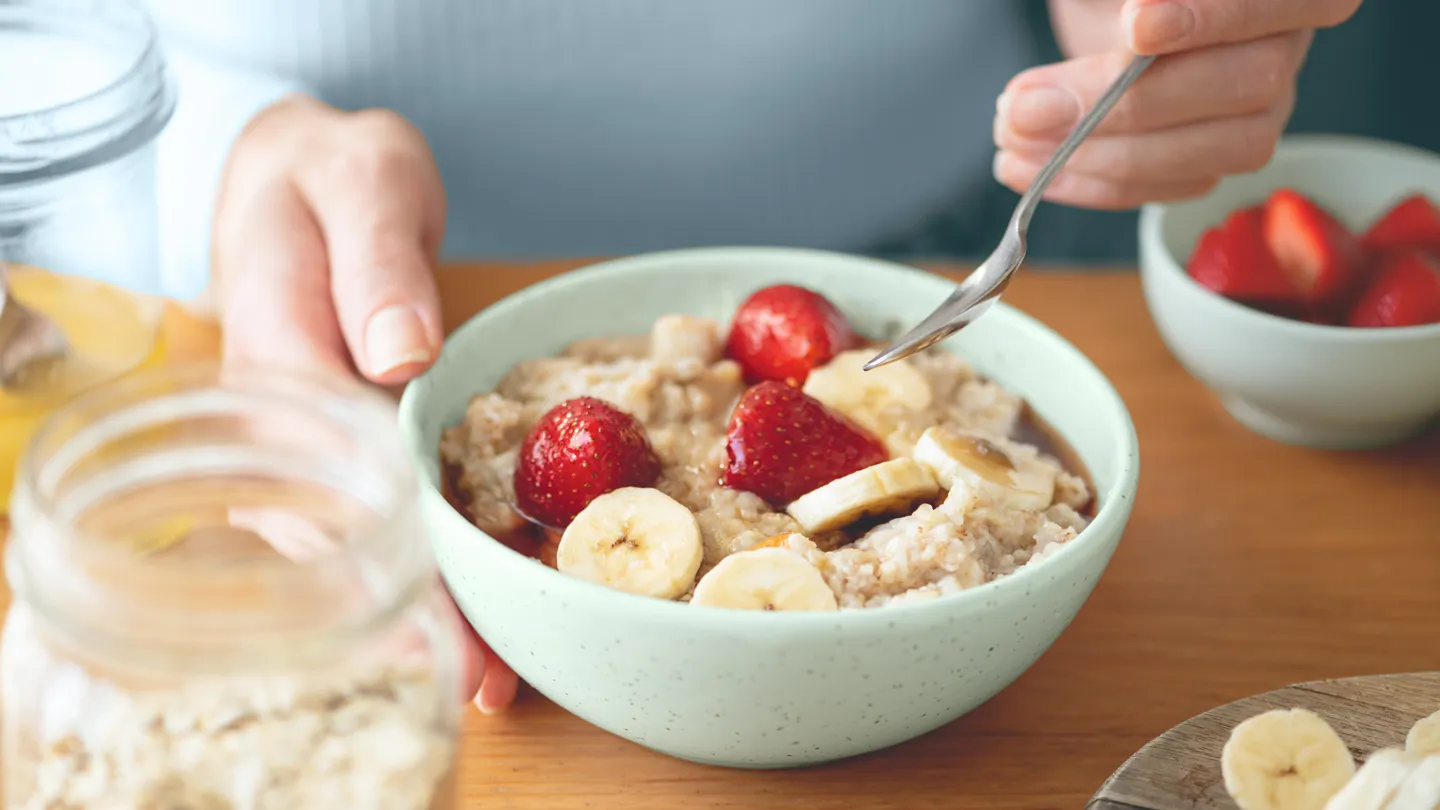Both types of fiber can also support a healthier, more diverse microbiome, since fiber is a source of food for the bacteria in your gut. While experts are still learning about the role that the microbiome plays in IBS, it’s thought that an imbalance of gut bacteria may be involved.
The downside? If you overdo it, too much fiber (of either kind) can end up making your GI symptoms worse, Moore says. So, you might need to experiment to find your sweet spot. It may also take some trial and error to find which sources of fiber are easiest for you to tolerate.
As you increase your fiber intake, go slow. This will give your digestive system time to adjust over the course of several weeks. Adding too much fiber to your diet all at once is a recipe for more gas, bloating, and constipation. Up your fiber intake (particularly the soluble kind) by just a few grams at a time, then wait a few days before adding a bit more.
Be sure to drink plenty of water too, Moore recommends. Fiber absorbs fluids as it passes through your GI tract, and not drinking enough water can make it even harder to have a bowel movement.
Read the full article here




